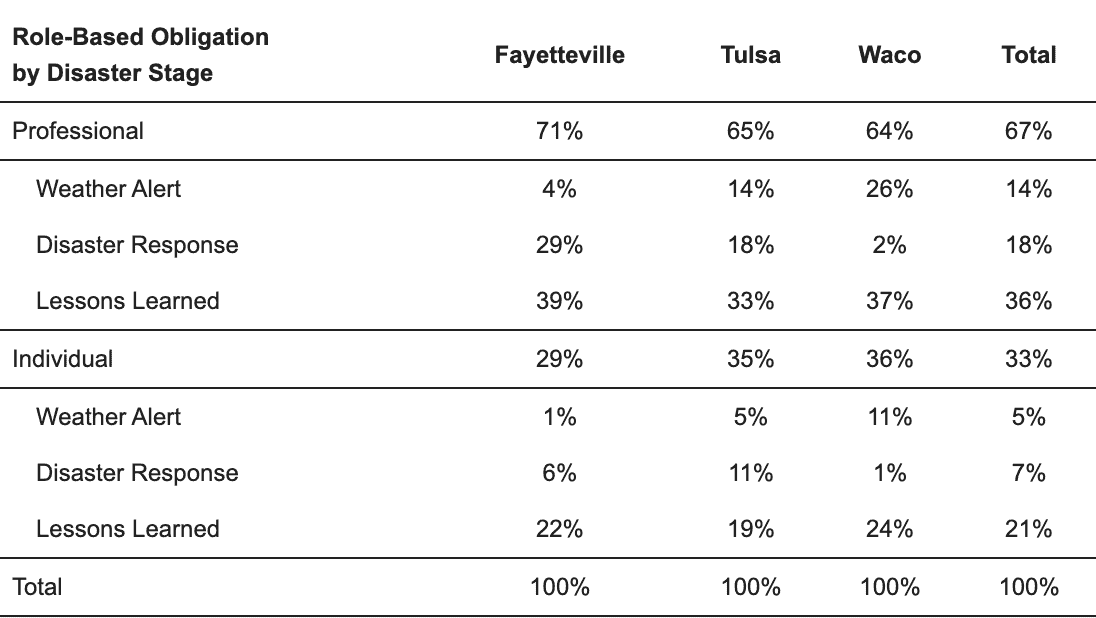How can community dialogue can inform natural disaster mitigation planning? To answer these questions, researchers at the University of Oklahoma and the Southern Climate Impacts Planning program used stakeholder analysis to explore public engagement related to flooding in three U.S. cities (Tulsa, OK; Fayetteville, AR; and Waco, TX). Our results identified different kinds of stakeholders and the factors motivating them to contribute to community discourse about disaster response efforts.
We find a wide range of engaged stakeholders representing governments, organizations, groups, and individuals directly and indirectly impacted by a natural disaster. These stakeholders contribute financial and non-financial resources throughout the disaster cycle, especially by identifying how lessons learned can be used to strengthen future mitigation plans to reduce the costs of responding to and recovering from extreme weather events.
These results provide information valuable for tailoring direct engagement efforts to reach residents not participating in the discussion, especially those with elevated vulnerabilities or untapped resources who can co-produce flood mitigation strategies designed to make their property and public infrastructure more flood-resilient and improve community sustainability.
This research was funded by NOAA, OAR Climate Program Office (CPO), grant number NA21OAR4310306.
To read the paper, click here. Or click the button below.

